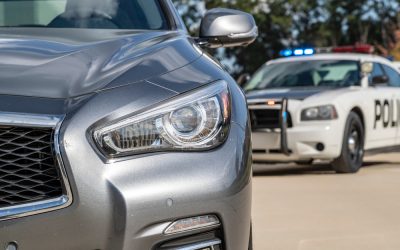
Was your license suspended due to recent driving under the influence (DUI) convictions? If so, you likely have trouble doing important activities like getting to work or going to buy essentials. Fortunately, the state of California allows some DUI convicts to submit an application for your hardship license. This license, which is also commonly known as a restricted license, allows for limited driving privileges.
Getting hardship licenses in California is not easy. There are numerous eligibility requirements and a lengthy application process. To increase your chances of acquiring your hardship license, work with a Los Angeles DUI attorney.
California Hardship License Eligibility
There are strict requirements that must be met in order to get a hardship license in California. The following must be true for an individual to meet the required eligibility criteria:
- This is a first time DUI offense
- The driver must be 21 years old or older.
- There has not been any subsequent DUIs since
- No driving privileges suspended or revoked due to another wrongful reason
- The driver must have taken the chemical sobriety test when requested including blood and breathalyzer tests.
- Within the last 10 years, no DUI charge was reduced to a reckless driving charge
- Must apply for personal driving license not related to a commercial driving license
Even though a DUI offender may meet each of the above criteria, there is no guarantee that the court will approve of such a license. A knowledgable attorney on your side can enact persuasive techniques to show that you are the right candidate for a hardship license.
Can I Get a Hardship License if Someone Was Injured by My DUI?
Acquiring a hardship license will be far more difficult if someone was injured in a DUI accident that you caused. This is because people who caused the injury are seen to be at higher risk of reckless driving while drunk. Therefore, you will need a DUI attorney if you hope to get a hardship license after injuring someone in a drunk driving accident.
When Should I Start Applying for a Hardship License?
Depending on your specific circumstances, a DUI attorney can provide advice on when best to apply for a hardship license. Generally, you should begin applying for a hardship license
- after your driver’s license has been confiscated by police
- an Order of Suspension has been issued
- Temporary License has been acquired
Temporary licenses may be used for thirty days of driving following the issuance of the order. Once the thirty days has expired, your license is suspended. Depending on your situation, the suspension may carry on for months or years. Starting the application for a hardship license can help get you back on the road and back to your normal way of life.
How Can You Begin Applying for a Hardship License?
If you lose your DUI case and are convicted, you may be interested in getting a hardship license. In order to do this, you must complete the application process. This process involves completing and submitting your DMV application, making a $125 payment toward the reissue fee, submitting proof that you enrolled in a court-approved DUI school, and showing proof that you have taken financial responsibility and purchased SR-22 level insurance.
Some California courts may also require you to enroll in Alcoholics Anonymous or another substance abuse treatment program. This is to ensure that you are working on developing skills that can be used to limit your use of alcohol, thereby decreasing the chances of you driving drunk again.
What Is SR-22 Insurance?
Bouncing back into driving mode after a restriction or suspension is not as easy as telling the DMV you are ready to drive. California requires proof of insurance by filing an SR-22 form, often called a certificate of financial responsibility. The form is provided to California DMV employees to demonstrate that you have purchased the minimum level of car insurance coverage under California law.
A SR-22 policy will more than likely increase the price of your insurance policy. In some cases, an insurance company may not even provide SR-22 forms. Regardless, to get back on the road, you must communicate with your insuranc policy to execute the SR-22 form in order for the DMV to approve your abillity to drive.
Can You Lose Your Hardship License?
Yes. Losing your hardship license creates a domino like effect causing difficulties and increase in monetary penalties when it is time to retrieve your regular license. Because there are limitations to this type of license, if you are caught driving to places you are not supposed to, you can lose your hardship license. You can also lose it by failing to complete a DUI driving program.
Where Can You Go with a Hardship License
A hardship licenses is not comparable to a general driver’s licenses. It does not carry the same privileges as a regular license. There is a limited number of actions. Usually, a hardship license can only be used to drive to and from places like work, your DUI school, educational institution, or a health care facility where you are receiving treatment. If you drive outside of these restrictions, you risk losing your hardship license.
Can a Minor Get a Hardship License?
If someone is under the legal drinking age when they get their first DUI offense, they may be able to acquire a Critical Need Restriction license. To apply for this license, the driver needs to complete an alcohol screening or, alternatively, pass a breathalyzer test with a BAC of .01 percent or more.
A Critical Need Restriction license is a type of hardship license. Drivers who wish to obtain it also need to show that they have specific critical need and other forms of transportation are inadequate. A critical need can be the necessity to get to work to pay rent because there is no other way of transportation to get there. This can be true for more rural areas or areas where public transportation is not reliable.
What Can a DUI Attorney Do?
If you hire a DUI defense attorney, they can represent you in a DMV hearing or in criminal court. They can also help explain what paperwork and fees must be submitted to get a hardship license quickly and with minimal effort. In many cases, your DUI attorney will also tell you the best time to begin applying for a hardship license, increasing your chances of getting one.
You should not mess around when it comes to getting your hardship license following a DUI conviction. Work with a Los Angeles DUI attorney to learn more about how you can manage this complex process. You can reach us 24/7 by phone or online.





